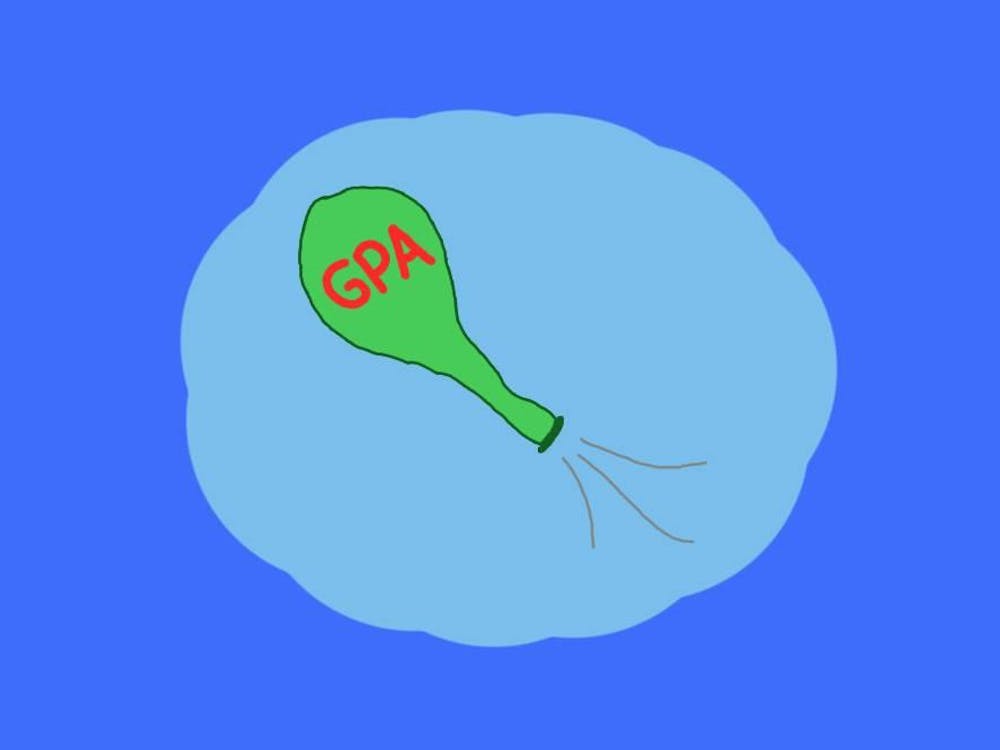RECEIVING advice is an indispensable part of a college education. It has little to do with the learning we get from textbooks, but it has everything to do with the education we receive outside the classroom -- an education that is at least as important as book learning.
Yet we have to be careful about the advice we receive and how closely we follow it. For example, we're told we should shape our lives so as to be a well-rounded person. This is generally good advice. But well-roundedness is not an absolute good -- we should be careful not to be too well-rounded. If we do, we risk watering down our talents and interests to the point that they're bland. And in so doing, we would threaten much of what is special about extracurricular life at this University.
Lots of people in our lives tell us to be well-rounded: parents, advisors, even older students imparting their wisdom as graduation nears. Oftentimes, these elders encourage us to pursue a broad range of interests because they nostalgically wish they could have done more. This is a natural urge -- college provides such a vast cornucopia of opportunities and activities that it's fairly impossible to do everything we might be interested in trying.
As a result of this advice, students frequently try and participate in as many activities and expose themselves to as wide a range of experiences as possible. We try and fit as much on our plates as we can, not wanting to miss out on something by focusing too much on one activity.
Yet, at the same time, we are pushed by peers and superiors to strive for excellence in all we do. This is counterintuitive to us, having set out to be well-rounded. Excellence necessarily demands concentrated effort at one or a few activities. This means we can't participate in everything we'd like to try. If we follow this advice, we can't be very well-rounded.
Now is a particularly relevant time to contemplate this conflict and our individual priorities about the proper balance between these two goals. In the next few weeks, most University Contracted Independent Organizations (CIOs) will elect officers for next year. Many students will have to make choices about how focused they want to be in their activities. They'll have to decide how committed they want to be to one organization, at the cost of pursuing other interests.
The vitality of the diverse intellectual and cultural life of the University depends on these students rejecting well-roundedness. The contributions various CIOs make to the University community depend on students pursuing excellence -- committing themselves narrowly.
If you doubt the value of students who choose to focus themselves on only one or two activities, go watch one of the dozens of University performance groups. Now is a good time -- many of them have spring concerts or performances in the next few weeks.
Listen to a singing group, watch a play, hear the orchestra, go to the opera, or watch a dance group perform. Enjoy these experiences, and appreciate the effort that goes into them. Remember that these opportunities are available -- indeed, to make the rest of us more well-rounded -- because of the efforts of students. In particular, these cultural activities are made possible because of the leadership of students who devote themselves substantially, if not exclusively, to an activity in which they have a talent.
Performance groups are only the most obvious examples -- dozens of less conspicuous groups owe their ability to contribute to the community to dedicated student leaders.
When you hear an address by a visiting speaker, remember that someone's work went into organizing the event. When your professor leaves the room during an exam, remember that such a luxury is only possible because of the students whose dedication protects our honor system. Indeed, when you pick this paper up every day, remember that its availability depends on the commitment of students -- often at the cost of all other extracurricular activities.
Many such student leaders devote double-digit -- sometimes triple-digit -- hours to their groups each week. These student leaders may not be well-rounded. They may sacrifice the ability to pursue several interests in order to be good at one. But such commitment should be valued; a degree of narrowness is necessary.
To some extent, those that advise us to be well-rounded are right. College is too rich with diverse opportunities not to try and experience many of them. But at some point, being well-rounded means dabbling in so many activities and areas that, at best, one can be mediocre at all of them. The diversity of quality activities at this University depends on some students being willing to narrow their focus.
Don't be hesitant to commit to a time-consuming leadership role for fear of not being well-rounded. Excellence depends on having students willing to take that step -- on commitment.
(Bryan Maxwell is a Cavalier Daily associate editor.)




